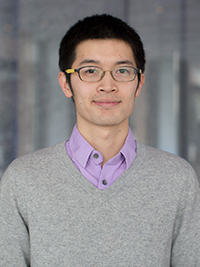
Postdoctoral research fellow
Department of Surgery
NYU School of Medicine
New York, NY
Targeting microbiome to enable efficacy for immunotherapy in PDA
Overview
Aim: Cancer Therapy
Systemic chemotherapy remains the standard care of therapy for advanced pancreatic cancer; however, it has limited efficacy. Immunotherapy has developed into a transformative treatment option in several malignancies, but pancreatic tumors have proven resistant to this approach. This resistance is caused by a relatively cold tumor microenvironment, making the immune system insensitive to target tumors. The sum of bacteria inhabiting the human body, collectively known as the microbiome, is emerging as an important regulator in the balance between health and disease. We hypothesized that the microbiome plays an important role in shaping the immune-suppressive environment in PDA. Accordingly, we recently reported that the cancerous pancreas harbors a markedly more abundant and distinctive microbiome compared to normal pancreas in humans and in mouse models (Cancer Discovery 2018). We showed that the microbiome exerts potent immune-suppressive influences on pancreatic cancers and can be targeted to improve outcomes in mice. We also found that by reversing immune suppression, targeting the microbiome enabled efficacy for immunotherapy that otherwise failed. We propose to perform experiments in both mouse models and in human 3-dimentional cancer models which are aimed at defining the most efficacious microbiome modulatory regimens – either antibiotics and/or probiotics – to combine with immunotherapy. Collectively, these foundational studies will provide rationale for the transformative clinical trial that will lead to a new treatment paradigm for pancreatic cancer patients that involves reconfiguring the microbiome to enable immunotherapeutic responsiveness in patients.